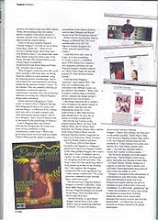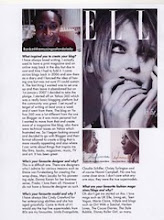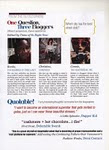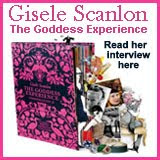 Me and Mr Darcy is the story of Emily Albright, a hopeless romantic who loves Shakespeare books. This is highly appropriate considering that she manages a bookstore in NYC. Her idea of a perfect night in is curling up on the sofa with a glass of wine with her nose in Pride and Prejudice. Unfortunately for Emily modern men do not do it for her and seem to lack the good old chivalry that is rampant in period fiction. With her love life looking rather bleek, Emily faces spending Xmas alone in her apartment, well it is either that or spending it on a nightmarish 18-30s holiday with her mate Stella. She decides to head to the England countryside on a guided tour of Jane Austen. The holiday turns out to be full of fun and adventure and rather like the books that she reads. I had the honour of interviewing Alexandra Potter, the author of Me and Mr Darcy and asked a few questions or two about writing, coffee and life in LA.
Me and Mr Darcy is the story of Emily Albright, a hopeless romantic who loves Shakespeare books. This is highly appropriate considering that she manages a bookstore in NYC. Her idea of a perfect night in is curling up on the sofa with a glass of wine with her nose in Pride and Prejudice. Unfortunately for Emily modern men do not do it for her and seem to lack the good old chivalry that is rampant in period fiction. With her love life looking rather bleek, Emily faces spending Xmas alone in her apartment, well it is either that or spending it on a nightmarish 18-30s holiday with her mate Stella. She decides to head to the England countryside on a guided tour of Jane Austen. The holiday turns out to be full of fun and adventure and rather like the books that she reads. I had the honour of interviewing Alexandra Potter, the author of Me and Mr Darcy and asked a few questions or two about writing, coffee and life in LA.What was the inspiration for your latest book? Did it have anything to do with the current trend for period books and dramas?
My inspiration is actually quite funny! I was complaining to my boyfriend about how men these days are not romantic anymore, and I said 'Why can't the men in real life be like the men you read about in books, all chivalrous and brooding and sweeping you off your feet. Why can't men be like Mr Darcy?' And my boyfriend said, 'I bet you wouldn't like Mr Darcy if you dated him.' And I replied. 'Yes I would!' To which he laughed and said, 'You should write a book about that.' And so I did.
You tend to write about women who are not willing to settle for second best in terms of their career or relationships. Do you think this is a common trait in modern women today?
Yes, I think women today are far less willing to compromise and 'settle'. In older generations, women were brought up believe that their role in life was to be a wife and mother. That their husbands and children come first. Most women didn't have careers, and if they did, they came second to that of their husband. Today things are very different, women earn their own money, they own their own apartments, they pay their own mortgage, and with this come a sense of independence that my mother's generation did not have. Of course with this can come lots of problems….:)
You have written about a wide range of interesting female characters which one do you think you are like most?
Gosh, that's a hard question. I see parts of myself in all my lead characters. My first heroine, Delilah, was very much like I was when I was twenty-three and first moved to London. Many of her experiences, were my experiences. However, since writing that book I have changed and grown – it was eight years ago after all – and so therefore my characters have also changed. I try not to be too autobiographical, after all, I am writing fiction!
In your books some of your supporting characters have been very colourful such as Vivienne in 'What's New Pussycat' Rita in 'Going La La' and Stella in your latest title, 'Me and Mr Darcy. Have you ever considered writing a spin off title about any of those characters?
Actually, no I haven't, but I like that idea. Hmm, maybe I will…
What do you think of the term chick lit do you see it as insulting or a great definition for modern women's fiction?
Actually I do find the term 'chick lit' as rather insulting as it is usually used in a very patronising and dismissive way. There are many, many female authors writing a huge diversity of fiction with strong female characters, and to lump them all together under the term 'chick lit' is insulting. Would you call all fiction written by men and featuring male lead characters as 'lad lit'? Of course you wouldn't. Methinks there is a little bit of jealousy and snobbery going on, as modern women's fiction often tops the bestseller lists and is enjoyed and read by millions around the world. Far more than much of what is deemed 'serious' literature…
How do you get into fiction writing?
I used to write features for women's magazines in both the UK and Australia and one day I read an article about six young authors, under the age of thirty, who had all just written their first novels. The article showed extracts from their novels, and inspired me to have a go myself. And so I did. I wrote the first three chapters in my spare time and then sent them to several agents – one of whom was Stephanie Cabot at the William Morris Agency. She loved what I'd written and told me to go away and write the rest of the book, so I gave up my job, sold my car, and lived off the money for six months. At the end of it, I finished my book, and handed it into my agent, who sent it to several publishers. Two of them loved it and there was a bidding war. It was very exciting. At the end of it I had a two-book deal worth six figures, and a brand new career!
What other authors do you admire and why?
I admire lots of different authors – both classic and modern - for their style of writing, their brilliant ideas, and for their ability to simply entertain with a cracking good book. The Brontes, Jane Austen, Sophie Kinsella, Nick Hornby and Audreny Niffenegger who wrote Time Traveller's Wife, to name just a few.
What advice would you give to budding authors out there?
Don't give up. Oh, and get an agent!
The life of a writer must be a busy one. Can you describe your typical day?
Make coffee, check emails, go on the internet: read Perez.com, my horoscope (and my boyfriend's) iChat my mum, call my friend Dana, make more coffee… No, but seriously – Actually, I am being serious. Every morning I go through this ritual. Only once I've exhausted every single possible excuse for procrastination, do I finally start writing. Writers are experts at procrastination. For me, it's mostly down to fear – the fear that I won't be able to think of a single funny thing to write and I'm going to spend hours staring at a flashing cursor, my mind as blank as the screen in front of me. I've written six books and trust me, I still have those days. So this is what I've learned: Inspiration does not strike in the Zara changing rooms. You're bottom does not leave that chair until you've written something. And a lot of somethings, eventually, make a novel.
Where do you do most of your writing; desk, garden, coffee shop?
I write from home a lot, but it can get very lonely – and it's VERY easy to be distracted – so sometimes I go out and work at a local coffee shop called, rather aptly, 'The Novel Café.'
What are you working on next?
My next book is called 'Pleased To Meet Me'. It's a high-concept romantic comedy that follows the character of Charlotte Merryweather, a successful 35 year old, who through some inexplicable chance somehow manages to bump into her younger 21 year-old self. I'm working on it right now and it's due out January 2009. So far I'm having lots of fun writing it!! Here's the blurb for the back of the book.
If only I knew then, what I know now… Imagine if you could meet your younger self – what advice would you give yourself? What words of wisdom would you bestow? What lessons about life would you share? Start a pension? Don't give that idiot your phone-number? Wear sunscreen! For one girl, there's no need to imagine. She's about to find out for real…
You divide your time between NYC, London and LA which city do you get your ideas from?
Ooh, that's a hard one. I get my ideas from all over the place: conversations with friends, articles I read online, places I visit – oh – and a lot of daydreaming…. I daydream a lot!
Me and Mr Darcy is out now!
Picture supplied by Hodder and Stoughton press office

























1 cool comments:
I really enjoyed this interview - thank you for introducing us to Alexandra. Keep the author interviews coming!
Cheers,
Erica
Post a Comment